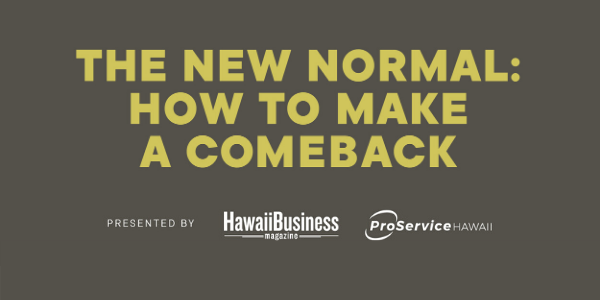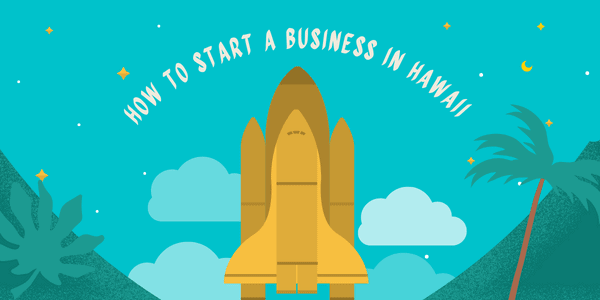AI Beyond the Buzzwords: Unlocking Efficiency and Creativity
A conversation about workplace technology can’t occur without the inevitable buzzword coming up—artificial intelligence (AI). And AI isn’t just another passing trend—it’s here, and it’s here to stay.
Within the past six months, the use of generative AI in the workplace has nearly doubled among global knowledge workers. A survey from Microsoft and LinkedIn found that AI helps employees save time (90%), focus on their most important work (85%), be more creative (84%), and enjoy their work more (83%).
While the rise of AI brings up new questions about its position in the workplace, employees have nothing to fear. AI is a tool, not necessarily a replacement for human creativity and ingenuity. This technology can help us do our jobs better and more efficiently, freeing up our time from mundane and repetitive tasks so we can focus on the work that truly matters to us.
But AI tools aren’t just for office workers. They have their place in every industry, from construction and transportation to hospitality and agriculture, helping to create efficiencies and give people more time back in their day—even right here at home in Hawaii.
In fact, the Hawaii Department of Transportation is using AI as a data filter to help predict traffic patterns and prevent accidents. Another local company, Library Creative, is exploring how to use AI models and drone photography in Hawai‘i to optimize crop yields and water management. Professors at the University of Hawai‘i are even looking into how AI can help predict the weather and possibly prevent wildfires.
Let’s dive deeper into some common AI tools, the kind of assistance they can provide, and some points to consider for each.
ChatGPT
While traditional AI relies on historical data to predict patterns and outcomes, ChatGPT is a generative AI tool, meaning its algorithm can create new content—visual, written, or audio.
In simple terms, ChatGPT is a chatbot and virtual assistant that can help with automating manual tasks.
Pros:
- The most advanced and powerful model for generating human-like text
- Integrates into various applications, like the suite of Google applications, Zendesk, and more
- Saves time on writing tasks like emails, essays, and code
- Basic version is free to use
Cons:
- Doesn’t natively integrate real-time search capabilities, which can lead to outdated or incorrect information in responses
- Responses will likely require some manual editing for brand tone and voice, as well as fact checking
Anthropic Claude
Similar to ChatGPT, but a little lesser known is Claude. It can be used for the same tasks as ChatGPT, like code generation, translation, visual analysis, and advanced reasoning.
Pros:
- Focuses on creating safer and more controllable AI
- Strong emphasis on ethical considerations, user safety, and data security
- Ability to cite specific sources
- Basic version is free to use
Cons:
- Less well-known and may lack some advanced capabilities found in other more mainstream models
Microsoft Copilot
Copilot is another virtual assistant like ChatGPT and Claude, created by Microsoft. Because of this, it integrates seamlessly with Microsoft apps and products—like an AI companion that can assist with daily tasks such as summarizing web pages, transcribing meetings, and more.
Pros:
- Integrated with Microsoft products
- Provides advanced analytics and insights within familiar applications like Excel, PowerPoint, and Power BI
- Get answers faster with top-of-the-line response models
- Basic version is free to use
Cons:
- Dependent on the adoption and integration of Microsoft products for higher tier subscriptions
Google Gemini
Gemini is Google’s AI assistant, much like the others we’ve already discussed. It can help with things like research, crafting custom proposals, sprucing up your emails, and creating job descriptions, to name a few.
Pros:
- Integrates with Google suite of products and apps
- Google Workspace customers can sign up for a Gemini add-on to their existing subscription
- Basic version is free to use
Cons:
- Dependent upon Google Workspace adoption for higher tier subscriptions
Clara
Clara automates admin tasks and simplifies HR communications by assisting with emails and automatically scheduling meetings.
Pros:
- Cloud-based and no need to download a program or software
- Automates emails, follow-ups, and meeting scheduling like a virtual personal assistant
Cons:
- Limited integration with third-party software
- No free trial and tiers can be a bit pricy
- Abilities are limited to straightforward scheduling needs—not many bells and whistles for the cost
Julius AI
Julius AI is designed for knowledge workers and can assist with computational and analytical tasks.
Pros:
- Helps with data analysis to provide insights, solve problems, generate reports, and create complex visualizations
- Strong analytical capabilities, making it suitable for industries that rely heavily on data-driven decision making
- Aggregates language models of OpenAI's GPT-4 and Anthropic's Claude
- Basic version is free to use, with 15 messages per month
Cons:
- May require a steep learning curve for users unfamiliar with advanced data analysis tools
- Limited versatility for general-purpose use compared to models like ChatGPT
Jasper AI
Jasper AI is an assistant intended for marketing teams. It can serve as a centralized location for brand voice, knowledge base, and style guides, and from that, can generate entire marketing campaigns—plus much more.
Pros:
- Tailored for marketing teams and content creation across a variety of industries
- Specialized tools for SEO, social media, and copywriting
- Can automate parts of the project management process
Cons:
- Not as versatile for general-purpose use compared to ChatGPT
- Content outputs will need to be manually fact checked
- Only offers a 5-day free trial
Midjourney
Midjourney is a generative AI program that creates images from natural language prompts, much like OpenAI’s DALL-E. Type commands into the Discord server, wait a few seconds, and a variety of images based on your descriptions will appear.
Pros:
- Fast image generation based on customized text
- Ability to create anything you can imagine
- No need for a specific app or program, as it functions through a Discord chat
- Ability to dictate size, resolution, art style, and image quality
Cons:
- Questionability of copyright issues
- Potential for “hallucinations” and distorted images
- Unable to generate text within images
- No free trial available
- Generated images are available for anyone to use
- Limited customer service
Fireflies
Fireflies.ai is a transcription and note-taking assistant that can provide automatic meeting notes, transcripts, and action items.
Pros:
- AI-powered transcription and note-taking during meetings
- Integrates with a wide range of communication tools like Zoom, Google Meet, and Microsoft Teams.
- Ability to search and analyze meeting notes, set reminders, and follow up on tasks
- Keeps a record of all meetings and conversations in a centralized knowledge base
- Basic version is free for individual use
Cons:
- May have occasional transcription inaccuracies and will require manual proofreading
- Advanced features can be costly for larger teams
Key things to note:
When creating AI-generated content, always proceed with caution and be aware of copyright policies. AI-generated images can be a bit of a minefield. Midjourney, among other AI companies, has been named in a recent lawsuit accusing them of using copyrighted art without permission to train their algorithms.
Because this is an emerging technology, there are not yet any federal laws regarding copyright of AI-generated content, but it’s something to keep in mind if you plan to use these kinds of tools in your business. The U.S. Copyright Office recently released part one of a detailed report regarding copyright, AI, and digital replicas (a.k.a., “deepfakes”), calling for federal legislation that protects artists and individuals. Expect more to come on this evolving issue.
Some companies have come under scrutiny for using AI-generated images in ad campaigns rather than hiring artists or graphic designers. Consider your audience and whether or not publishing AI-generated content is right for your business.
The emergence of AI promises unprecedented efficiency and time savings in the workplace, sparking widespread intrigue and excitement. However, a recent Gartner study reveals that 77% of HR leaders have concerns about the accuracy and safety of AI in business applications. This underscores the critical need for organizations to navigate the potential risks of AI carefully, particularly when handling sensitive or confidential information.
About ProService Hawaii
ProService Hawaii is the state’s leader in HR consulting and management. The company gives employers access to benefits, payroll, HR and risk support that make it easier to hire, manage and grow their teams. With over 3,000 client employers and 50,000 employees statewide, ProService Hawaii impacts nearly 10% of the state’s private employment market, making it the largest and most trusted provider for HR services in Hawaii since 1994. As an industry leader, ProService combines the power of passionate local experts with innovative products to build and transform the workplace in Hawaii. ProService is headquartered on Oahu at 6600 Kalanianaole Hwy., Ste. 200, Honolulu HI 96825. Additional offices are located in Kona, Kahului, Kapaa and Downtown Honolulu. Telephone: (808) 394-3100.









